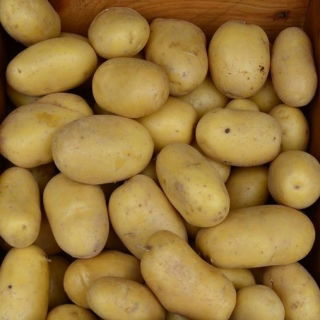- US Dollars ($)
- Euro (€)
- GB Pound (£)
- Chinese Yuan (元)
- Swedish krona (kr)
- Russian ruble (₽)
- Hong Kong dollar (HK$)
- Norwegian krone (kr)
- Indian rupee (₹)
- New Taiwan dollar (NT$)
- Danish krone (kr)
- Hungarian forint (Ft)
- Saudi riyal (SR)
- Bulgarian lev (лв)
- Czech koruna (Kč)
- Israeli shekel (₪)
- Indonesian rupiah (Rp)
- Japanese yen (¥)
- Korean won (₩)
- Malaysian ringgit (RM)
- Romanian leu (leu)
- Swiss franc (Fr.)
- Serbian dinar (din)
- Vietnamese đồng (₫)
- Ukrainian hryvnia (₴)
- Turkish lira (₺)
- Thai baht (฿)
- CAD Dollars ($)
- English
- German - Deutsch
- French - Français
- Spanish - Español
- Italian - Italiano
- Swedish - Svenska
- Norwegian - Norsk
- Danish - Dansk
- Nederlands
- Estonian - Eesti keel
- Finnish - Suomalainen
- Hungarian - Magyar
- Latvian - Latviešu valoda
- Lithuanian - Lietuvių
- Portuguese - Português
- Bulgarian - български
- Czech - Čeština
- Croatian - Hrvatski
- Romanian - Română
- Slovak - Slovák
- Slovenian - Slovenščina
- Categories
-
Seeds
-
Vegetable Seeds
-
Flower Seeds
-
- Ageratum, Flossflower seeds
- Alyssum seeds
- Amaranth Seeds
- Aquilegia, Columbine seeds
- Aster seeds
- Aubrieta Seeds
- Begonia seeds
- Bellis perennis, Daisy seeds
- Californian Poppy Seeds
- Campanula, Bellflower seeds
- Celosia, Cocksbomb seeds
- Centaurea, Cornflower seeds
- Chrysanthemum, Painted Daisy seeds
- Coleus seeds
- Convolvulus seeds
- Coreopsis seeds
- Cosmos seeds
-
- Datura seeds
- Dianthus, Carnation seeds
- Echinacea, Coneflower seeds
- Flower seed mixtures
- Forget me not seeds
- Foxglove seeds
- Gaillardia Seeds
- Gazania seeds
- Geranium, Pelargonium seeds
- Godetia seeds
- Gourd, Ornamental squash seeds
- Gypsophila, Baby's Breath seeds
- Hollyhock seeds
- Impatiens seeds
- Ipomoea, Morning glory seeds
- Calabash, Bottle Gourd seeds
- Larkspur, Delphinium seeds
-
- Limonium, Statice seeds
- Lobelia seeds
- Lupin, Lupine seeds
- Lychnis, Catchfly seeds
- Mallow Seeds
- Marigold, Tagetes seeds
- Milkweed Seeds
- Nasturtium seeds
- Nemesia seeds
- Nepeta, catmint seeds
- Nicotiana, Ornamental Tobacco seeds
- Nigella, Love in a mist seeds
- Pansy seeds
- Petunia and Surfinia seeds
- Phlox seeds
- Poppy seeds
- Primula, Primrose seeds
-
- Red Valerian, Centranthus Seeds
- Ricinus, Castor bean seeds
- Runner bean seeds
- Safflower seeds
- Salvia, Ornamental sage seeds
- Snapdragon Seeds
- Stock seeds
- Strawflower, Golden everlasting seeds
- Sunflower seeds
- Sweet pea seeds
- Tunbergia, Black-eyed Susan Vine seeds
- Verbascum, Mullein seeds
- Verbena seeds
- Veronica, Speedwell seeds
- Viola, Violet seeds
- Zinnia seeds
-
- Herb Seeds
- Sprouting Seeds
-
Flower Bulbs
-
Garden Equipment
-
At home
- Around home
-
Fertilizers
-
- All-purpose fertilizers
- Autumn and winter fertilizers
- Blueberry fertilizers
- Boxwood fertilizers
- Bulb plants' fertilizers
- Grass and lawn fertilizers
- Citrus plant fertilizers
- Compost
- Conifer fertilizers
- Dolomite and lime fertilizers
- Dry powder fertilizers
- Fertilizers for balcony and terrace plants
- Fertilizers for moss-infected lawns
- Fertilizers in pump sprayers
-
- Fertilizers in watering cans
- Fertilizers sticks
- Fertilizers with leaf shine
- Flowering plant fertilizers
- Fruit fertilizers
- Fruit tree fertilizers
- Garden plant fertilizers
- Gel fertilizers
- Geranium fertilizers
- Green plant fertilizers
- Herb fertilizers
- Home plant fertilizers
- Hydrangea fertilizers
- Lavender fertilizers
-
The very early Colomba potatoe produces round or oval tubers that are covered with a shiny, attractive, light beige skin. A single tuber weighs from 80 to 125 grams. One plant develops up to fifteen well-developed tubers of premium quality. Presented variety shows quite good drought tolerance and good resistance to diseases and pests, especially potato eelworm. Valued for its great taste, variety's bright yellow flesh does not lose its properties during storage. Its taste perfectly complements other vegetables. Moreover, Colomba potatoes retain their shape when boiled and look appetizing served whole as a starchy side dish. We also recommend using Colomba potatoes in salads and casseroles. They taste great as chips (French fries), baked in quarters, made into pancakes, or a purée.
The Colomba potato is considered easy to grow, which is why it attracts the interest of many gardeners. Seed potatoes of this variety should be planted in fertile, permeable, and airy soil. Prepare the soil properly in advance - weed it thoroughly and cultivated deeply. The planting holes should be about 10 to 15 centimetres deep, made every 25 centimetres in rows 60 to 70 centimetres apart. Adjust the actual parameters to the size of the seed potatoes and the type of soil. Plant Colomba potatoes as early as beginning of May to harvest in July. It is also possible to plant in the summer and harvest tubers at the turn of September and October.
We hereby offer a 12-tuber package of A-class seed potatoes, sized 35 to 55 millimetres in circumference.
- Variety: Colomba
- Site: sunny; fertile, permeable, airy soil
- Bulb size (circumference):: 35 to 55 mm
- Bulbs: 12
- Planting period: May or July
- Planting depth (centimetres): 10 to 15 centimetres
- Planting distance (centimetres): 25 cm, in rows 60 to 70 cm apart
- Wintering in the ground?: no
New


My account
Store
Customer information
Information

© -2025 Gardenseedsmarket.

